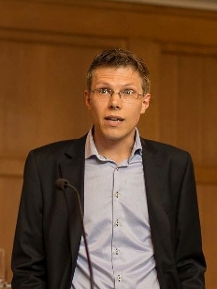

“Et tu, Brute?” – with these famous last words, Shakespeare’s Julius Caesar encapsulates one of history’s most iconic acts of betrayal. From Brutus’ dagger to Judas’ kiss, stories of broken trust resonate across time and cultures. Yet, while betrayal has been widely studied in the social sciences, its historical dimensions – particularly in premodern contexts – remain underexplored.
This conference, organized by graduate students of the Classical, Medieval and Early Modern Studies (CMEMS) programme at the University of Groningen, seeks to shed light on the personal and societal experiences of betrayal in premodern societies. Drawing on perspectives from history, literary studies, and classics, the event aims to understand how trust was conceptualized, how its violation was experienced, and how societies responded to such ruptures.
Rather than viewing betrayal solely through the lenses of treason or adultery, the conference adopts Larissa Tracy’s definition of ‘betrayal’ from her introduction in Treason: Medieval and Early Modern Adultery, Betrayal, and Shame, as an overarching term for any act that disrupts bonds of trust. Participants will examine a wide range of topics, from the emotional trauma caused by betrayal, to the changing perceptions and punishments of acts such as heresy, political treason, and infidelity across different historical contexts.
Consequently, through our different presentations and panel discussions we target questions such as: How did individuals cope with the shock, guilt, or shame that betrayal might bring? How did communities address and remember such acts? And what can these responses tell us about the moral and social fabric of premodern societies? By engaging with these questions, this conference will foster a deeper, interdisciplinary understanding of betrayal not just as a timeless human experience, but also as a historically and culturally specific phenomenon. All are welcome to join as audience and engage in discussions on June 30 from 9:00-17:00 at the Expositieruimte, Harmoniegebouw in Groningen.
Please sign up using this form.
Indicative programme
9:00-9:30 Doors open
9:30-9:45 Opening talk
9:45-10:45 Keynote by Dr. Johan Olsthoorn
10:45-11:00 Coffee break
11:00:12:00 Student panel 1
12:00-13:00 Lunch
13:00-14:00 Student panel 2
14:00-14:15 Coffee break
14:15-15:15 Student panel 3
15:15-15:30: Coffee break
15:30-16:30: Student panel 4
16:30-17:00 Closing matters
Clarification of programme components
– The keynote talk will serve to introduce and contextualize the topic of betrayal in its multiple forms throughout premodern history. The speaker’s own research interests will be incorporated into this talk, but the focus will be on the broader contextualisation of betrayal.
– Each of the student panels will consist of two 20-minute talks of related topics, followed by a 20 minute question and discussion session. During the question and discussion session both those participating in the panel and those in the audience, will have the opportunity to engage with the panelists on their talks.
Learning aims and outcomes
– Learning about the various forms of and societal perspectives on betrayal in pre- and early modern history from both historical and literary angles.
– Participating in academic discussions in the context of a conference; interacting with fellow scholars.
– Thinking critically about and reflecting on the multifaceted nature of the concept of betrayal across eras and cultures.
Assessment and assignments
– Preparation and active participation in critical reading and discussion of fundamental research literature.
– Preparation and active participation in the question and discussion session after the keynote talk and student panels.
– Reflection on the multiple forms of betrayal in pre- and early-modern societies.
– Reflection on the changes in perspectives on betrayal across time.
– The previous two points to be presented in a written essay of c. 1,000 words, in which the student reflects on the seminar and connects it to their own work.
Literature
– Margalit, Avishai. “Preface.” On Betrayal, 83-156. Cambridge, Massachusetts: Harvard University Press, 2017.
– Tracy, Larissa. “The Shameful Business of Betrayal and Treason.” In Treason, edited by Larissa Tracy, 1-24. Leiden: Brill, 2019.
